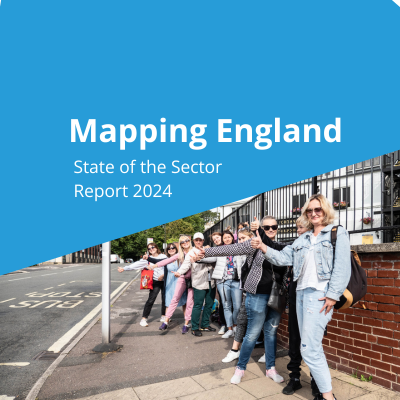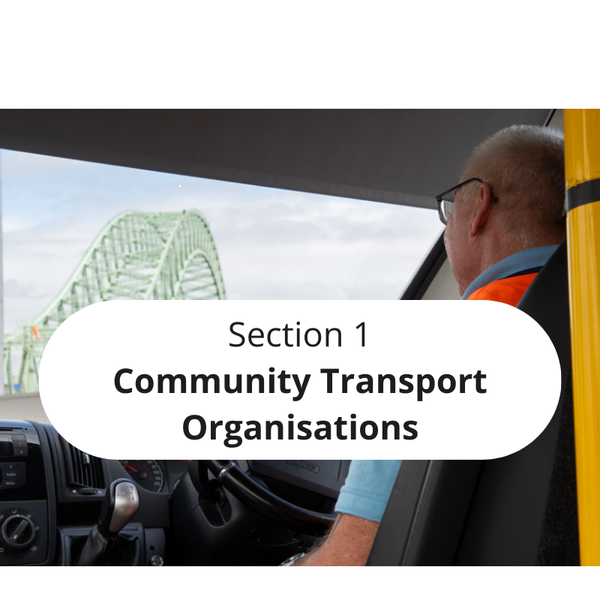Mapping England is the first state of the sector survey for Community Transport in England since 2014.
The research is intended to provide an updated overview of England’s Community Transport Organisations (CTOs), their services, staff, volunteers, income and vehicles, to show the scale and breadth of the work delivered by CTOs across England.
CTA’s key policy areas were set out in the CTA manifesto. Below is a summary of some the key results in these areas:
Modernising for Growth
Recruiting volunteer drivers with a D1 license entitlement (allowing them to drive minibuses) is critical for CTOs. 45% of volunteer drivers with a D1 category license hold this entitlement as they received their license before 1997, whilst 31% of volunteer drivers only have a ‘B’ license. The overall number of drivers with the D1 entitlement will fall by a fifth in the next five years and continue to reduce after that. CTA is regularly engaged with the government on this issue and will continue to lobby new ministers for change.
In England, over 34,000 section 19 permits and 821 section 22 permits were issued between 2018 and 2023, but for many of these permits, information is limited and varies between different designated bodies. CTA is working with the Office for Transport Commissioner and the Department for Transport to provide clarity on operating licensing guidance and the role of small vehicle permits.
37% of operations currently use journey planning software. Amongst those using software, 17 different systems were identified, not including several bespoke systems. CTA will discuss this issue with England forums to understand the best way forward.
Bookings in the Community Transport sector are still predominantly done by phone. Whilst this may be the most convenient option in most cases, there are opportunities to increase the 22% of organisations taking booking through a website or the 2% currently using an app. CTA will continue to work with digital providers, to showcase new solutions and evaluate their effectiveness for the sector.
Improving Access to Health and Social Care
68% of CTOs are making journeys to health-related destinations and 60% are travelling to social care. However, only 29% are in contact with health services and 11% are in receipt of health authority funding. The CTA manifesto sets out possible routes to improved partnership working with health services and we will continue to look to opportunities for CTOs to engage with local health services through our policy programme.
More encouragingly, 65% of CTOs feel well connected to their VCS, meaning that another manifesto priority, improved integration with social prescribing partnerships, should theoretically be within reach. However, this integration is also dependent on better partnerships with health trusts to ensure that CTOs are integrated into planning and receive funding for their activities.
Investing in Community Solutions
Funding and finance issues were the 2nd highest priority for CTOs behind recruitment and included concerns over continued funding, as well as rising costs. 77% of CTOs receive grant income and grants are in the 3 highest sources of income for 81% of these organisations. Grant income is therefore critical to CTOs, but it is time-limited and reapplying or finding new grants is a major drain on staff resources. CTA will continue to call for more sustainable funding from local government.
Ensuring Community Transport is a part of key government schemes, partnerships and strategies is a central aim for CTA. Currently, half of respondents disagreed that they were part of local transport decision making. There remains a clear need for representation at a national and regional level to ensure that local guidance includes CTO involvement for Local Transport Plans, Bus Service Improvement Plans, Bus franchising and other transport planning.
Community bus routes, run through section 22 permits, were being operated by 24% of respondents. These were more likely to be run by CTOs operating in rural areas. CTA will continue to gather intelligence and best practice to inform the provision of community bus routes.
Accelerating Community-Led Climate Action
The CTA manifesto identifies the need to encourage the uptake of electric vehicles. In England, only 3% of identified vehicles were electric. Cost and funding issues were a major barrier. Moreover, charging infrastructure, both at depots (if the organisation has one) and in public, remains an issue. CTA are planning further work to identity policy and practical solutions to overcome barriers to adoption.
39% of diesel vehicles were older than Euro 6 rating, meaning that they have the potential to be charged if accessing a Clean Air Zone. The CTA will continue to liaise with authorities to ensure that Community Transport is included in exemptions and funding for replacements, as well as looking to encourage all sources of funding for new vehicles.
Delivering a Fair Deal for Volunteers
Volunteers are essential to the existence of Community Transport. Respondents to the survey had 4279 volunteers during 2022/3, which equates to nearly 16,000 if factored up to CTA England members. Amongst survey respondents, 37% of CTOs had seen a decline in volunteer recruitment in the past year. Most organisations were also seeing rising demand and 67% did not think they had sufficient volunteers to meet demand for their services.
Recognising these pressures and noting falling number of volunteers and rising demand, CTOs named recruitment as their biggest priority in the coming year. CTA has already started to provide more support and opportunities for peer learning in this area and will continue offer this through Community Building Sessions and bespoke learning opportunities.
To read the full report, click here


